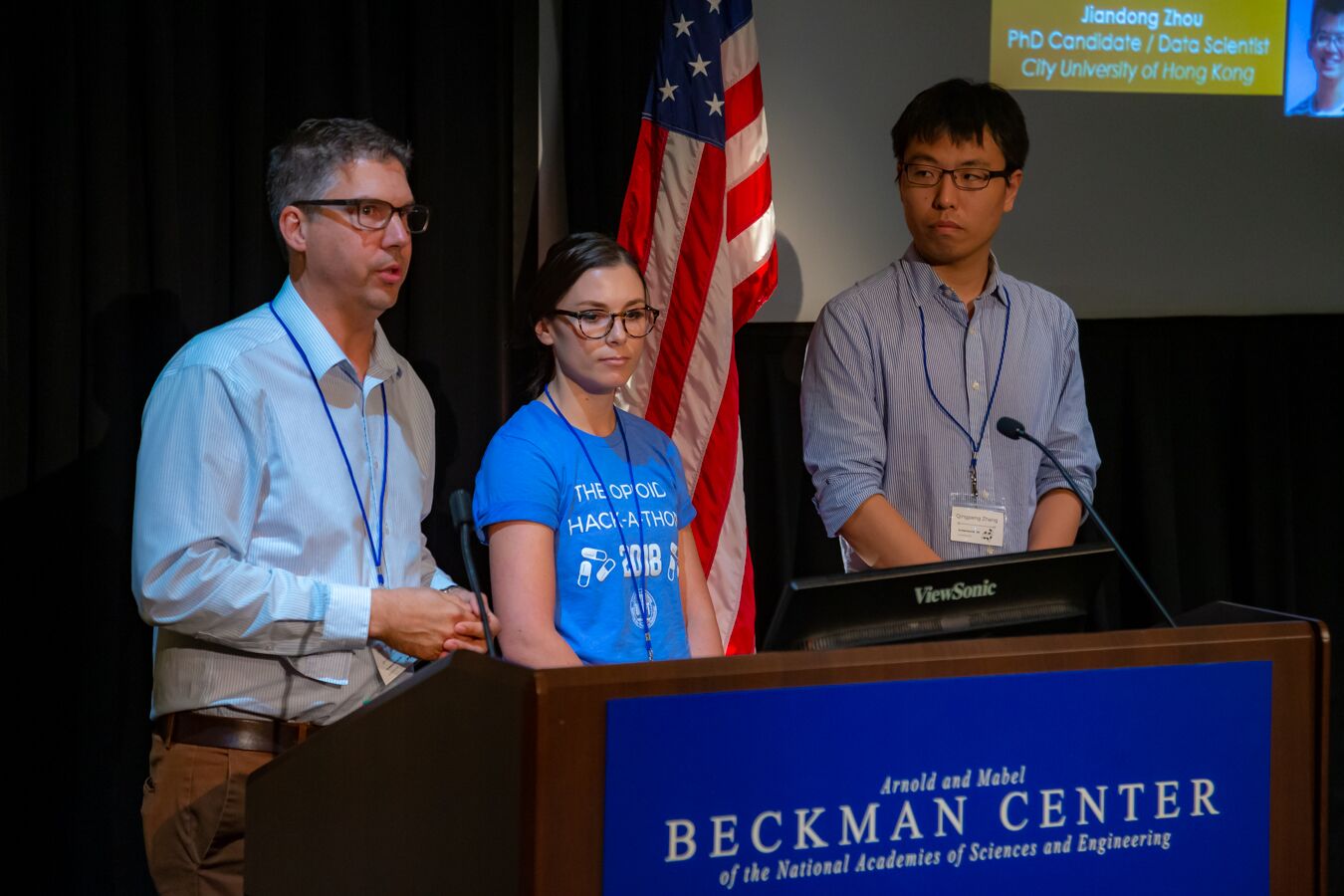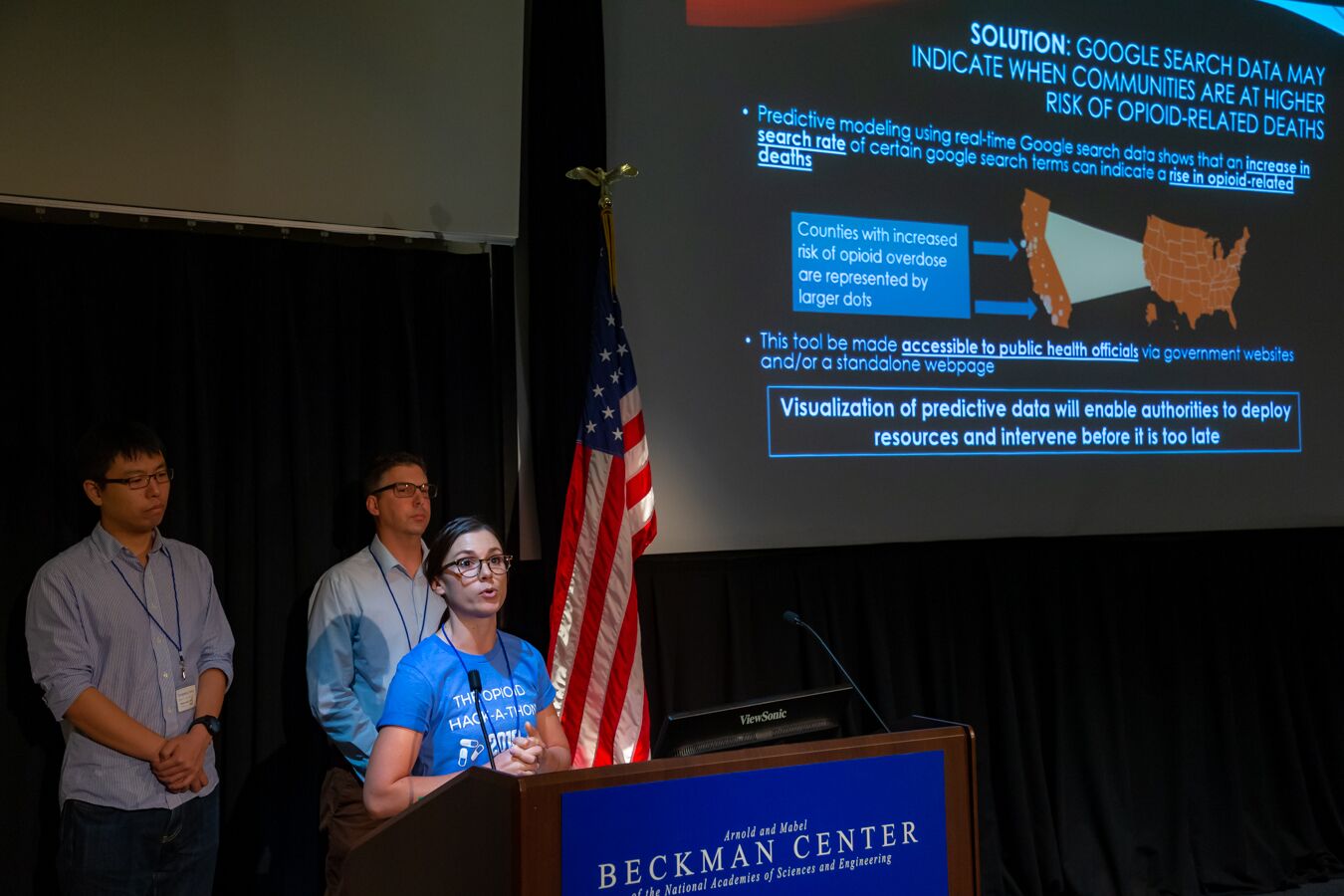Skip to content
Home » 2018 Hackathon Winners
John Hsu, Sherie Hsieh, Alan Young, Brandon Howard, and Paul Gauvreau developed iPill. IPill is an application that regulates opioid dispensing for a patient while offering alternatives to taking the opioid pill. IPill is designed to help promote behavior change in the most at-risk patients through secure data on the blockchain. IPill incorporates hardware and software that uses interventions to help patients and patient providers, and the government at the federal, state, and local levels.
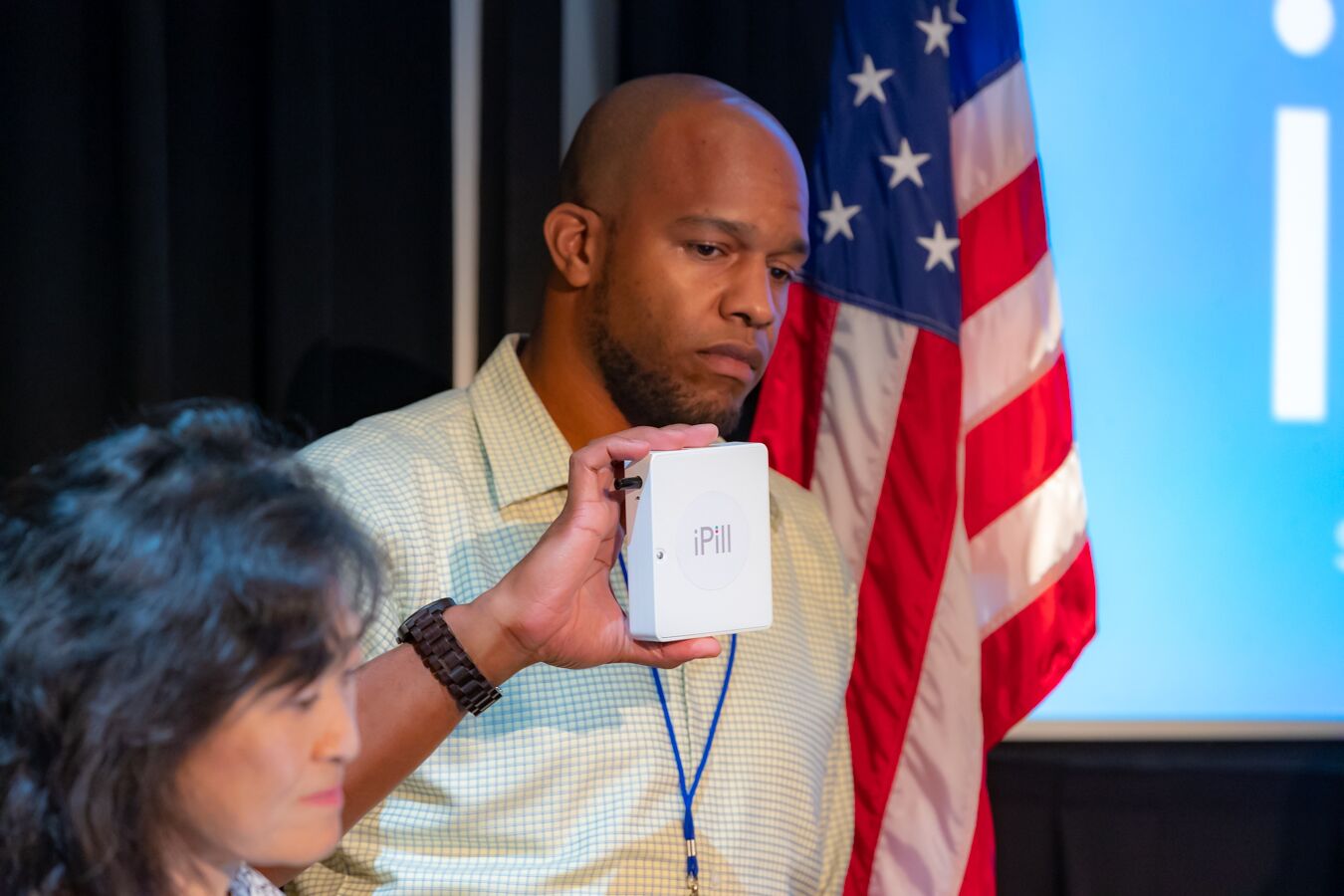
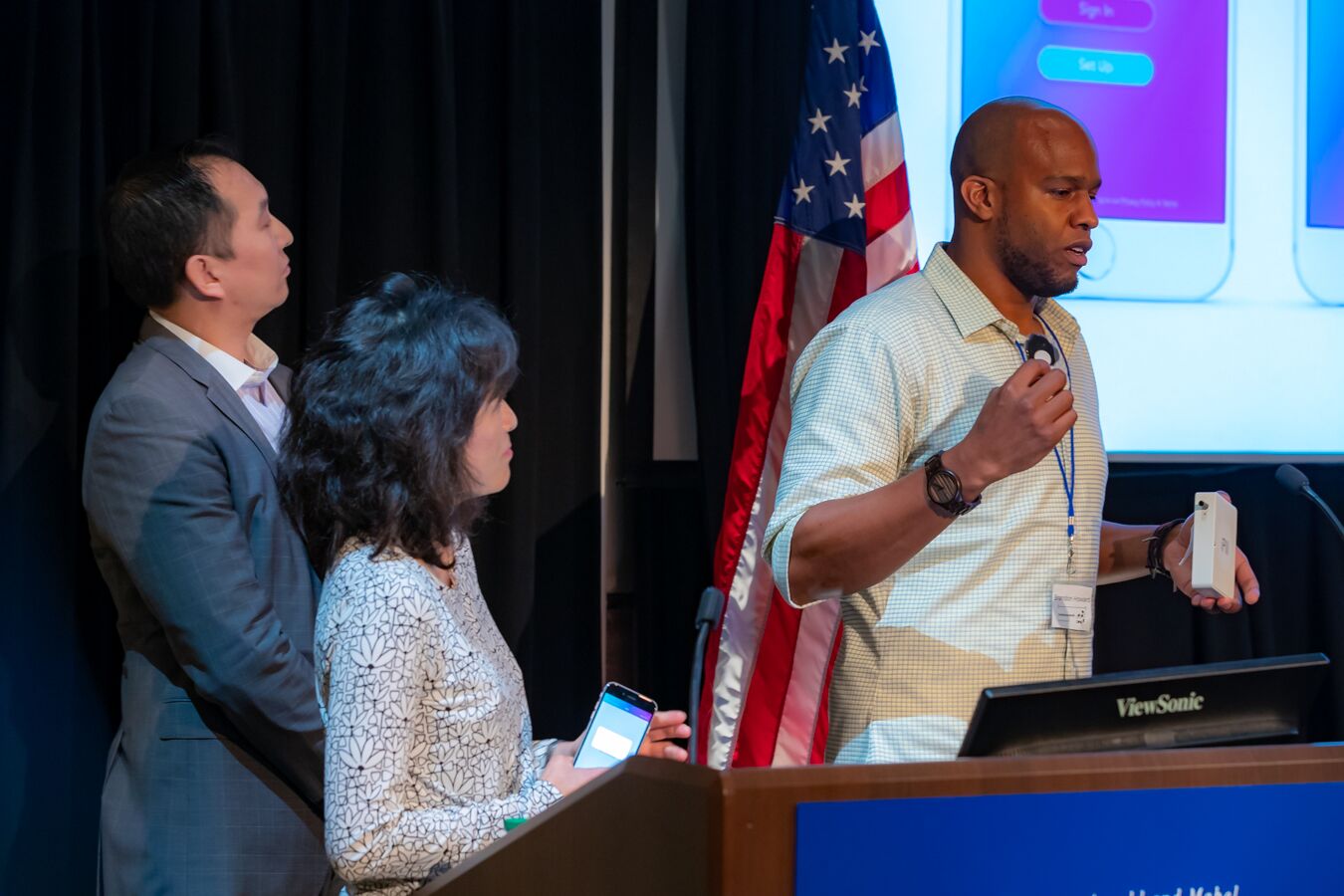
Ellie Gordon, Alex Chen, Brian Nguyen, Cameron Bacciarini, and Andrew Dennis presented Recovery. Recovery is an application that works proactively in relapse prediction and incorporates wearable data, machine learning, and patient data. Recovery can be used by people in recovery, their support network, and their clinicians.
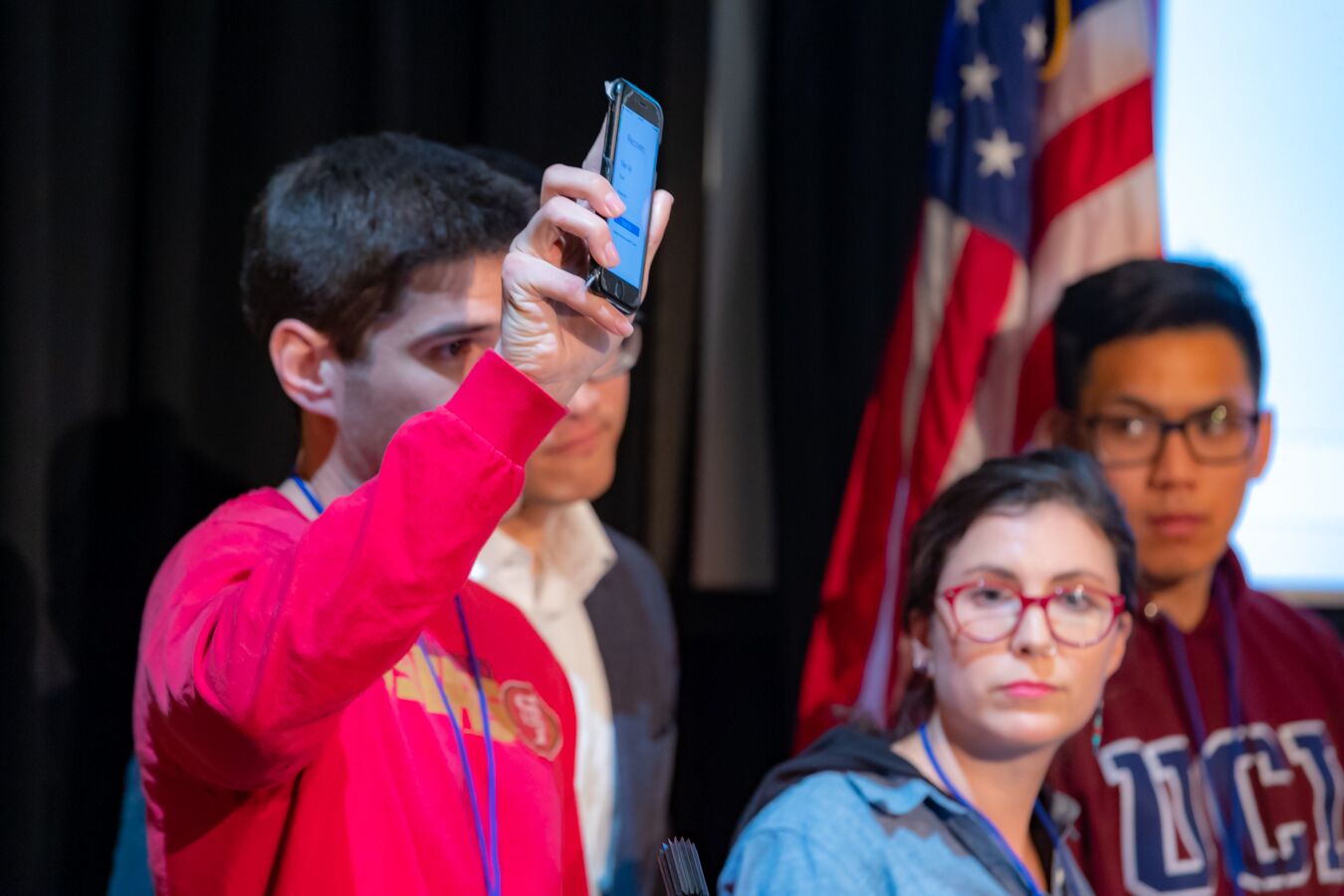
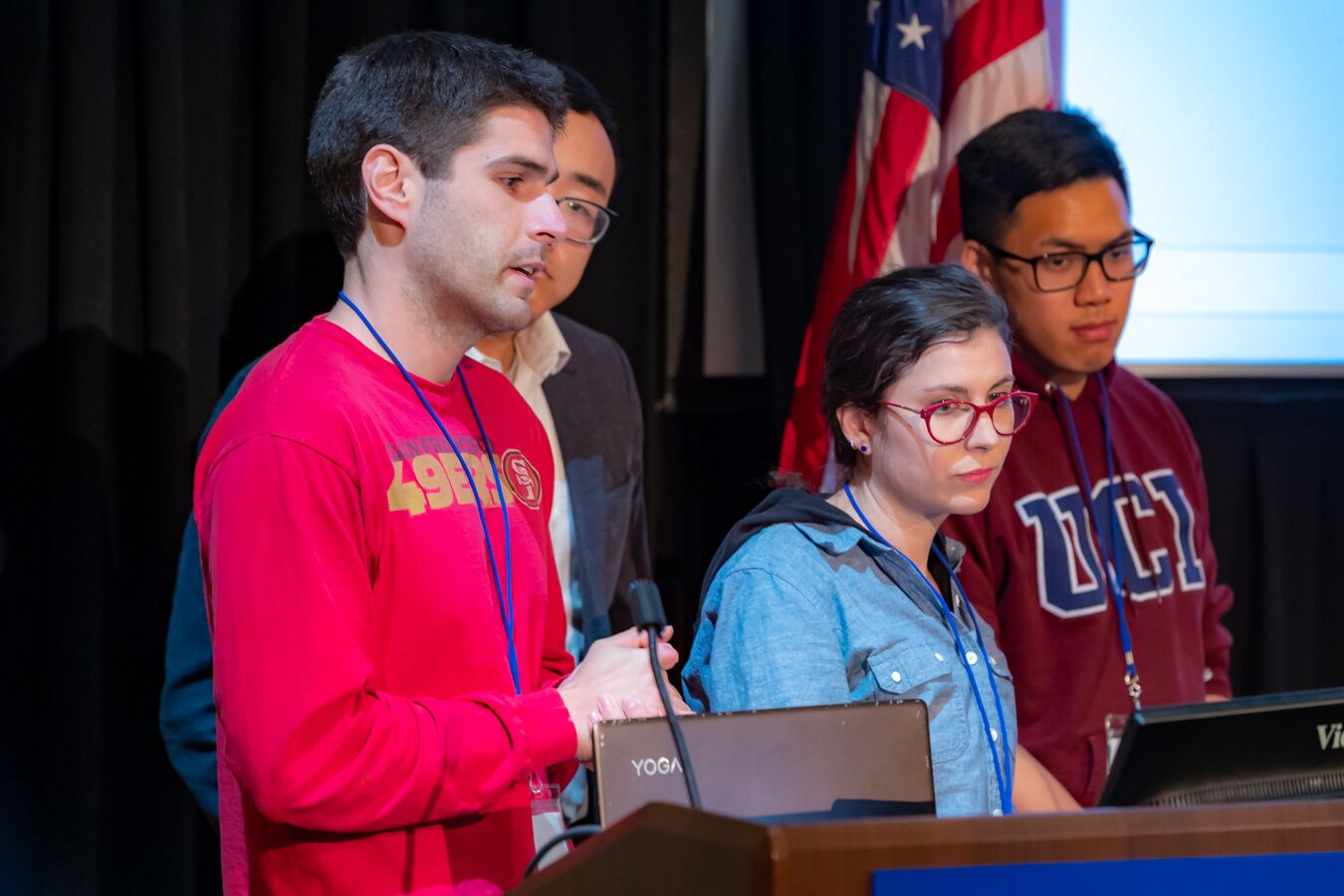
Su Jeong Park, Christine Chen, Karen Lee, and Ah Reum Lee used applications of machine learning to predict opioid overdose deaths in California. Machine learning approaches were used using a random forest model to aggregate and analyze a large number of opioid related datasets in order to predict opioid related deaths in California.
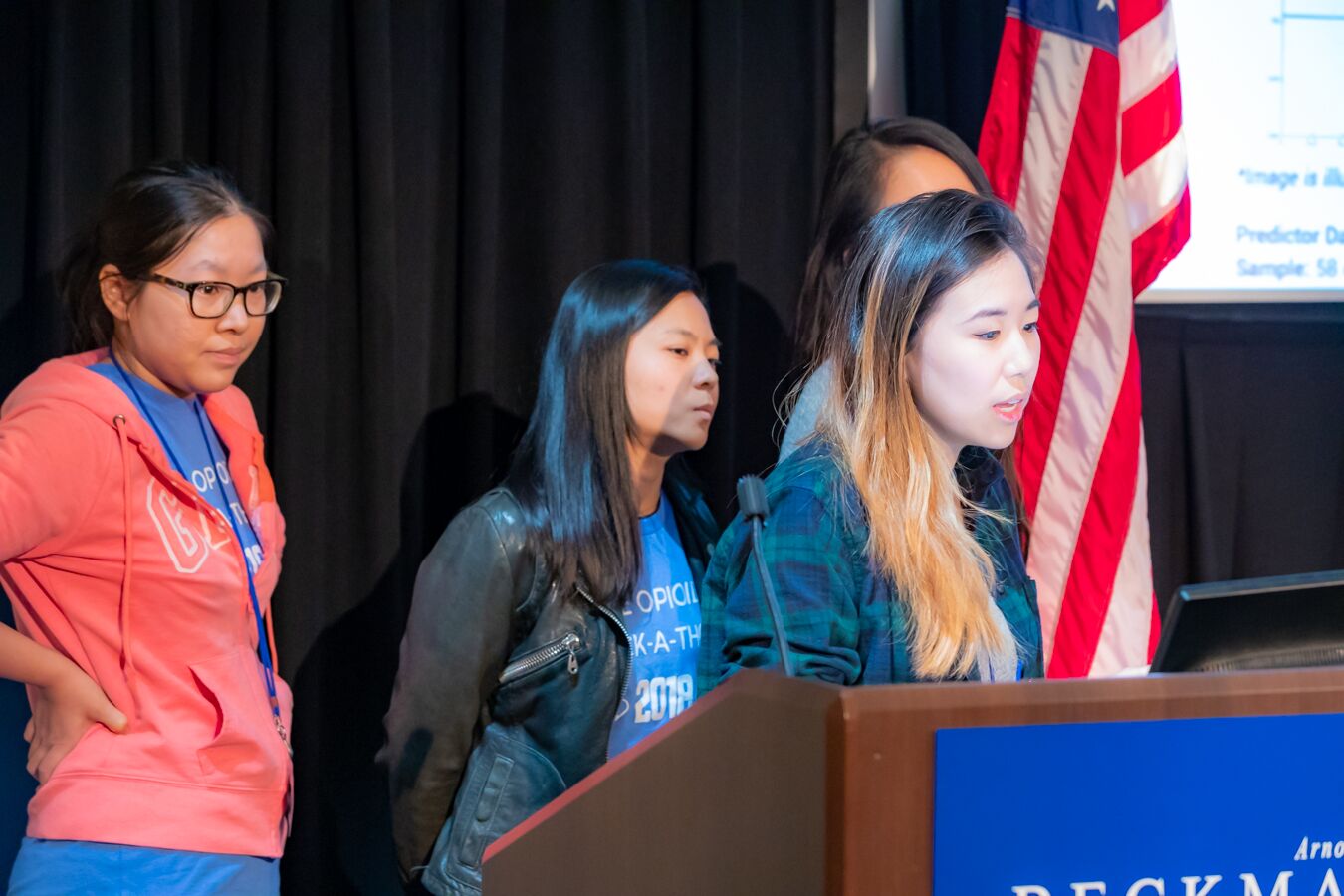
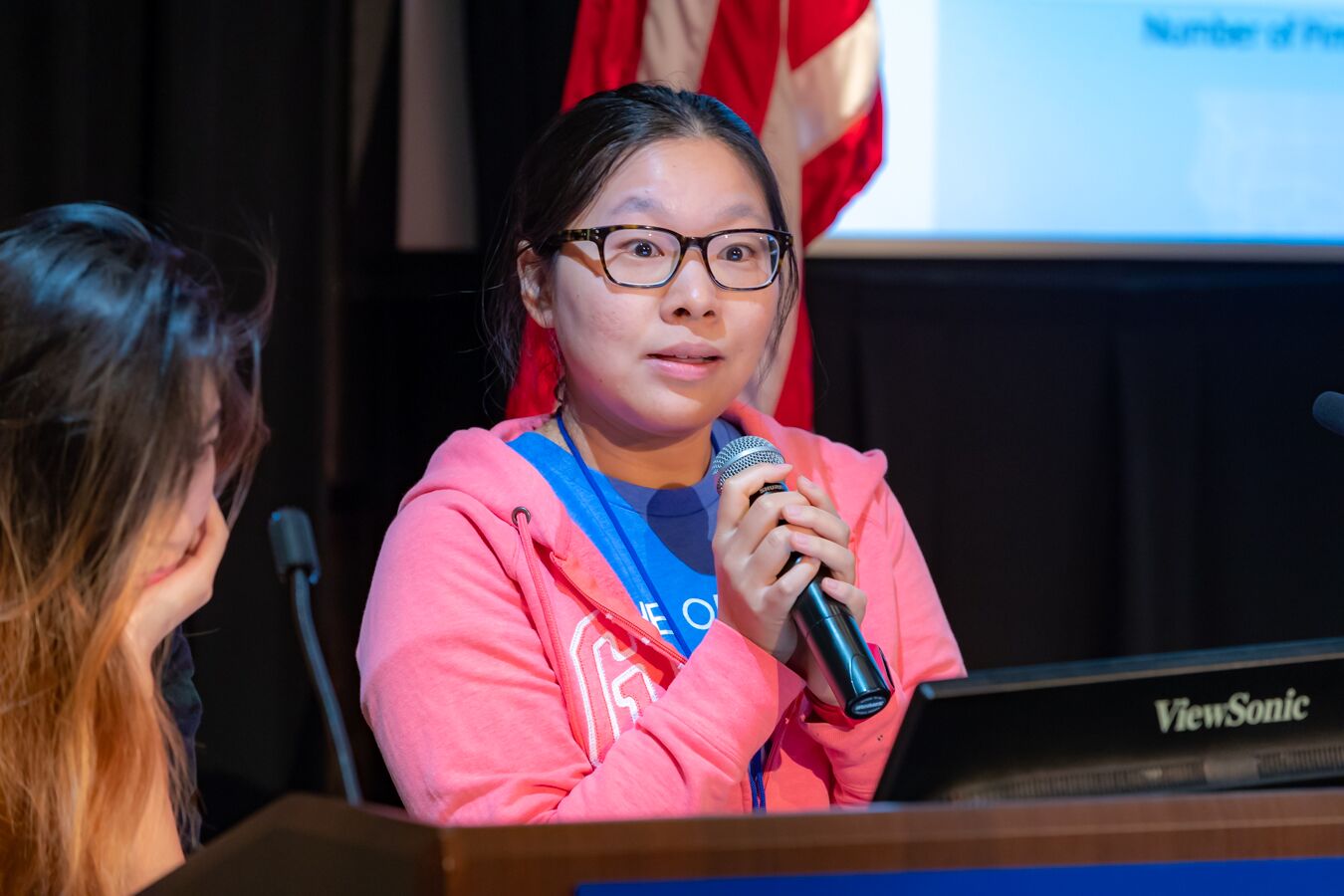
Qingpeng Zhang, Jiandong Zhou, Bianca Giusto, and Michael Masterman-Smith used open source data analysis to predict opioid overdose and help reduce opioid usage. Google search data and cannabis data were used alongside machine learning methods to analyze and visualize the relationship between cannabis and opioid deaths.
